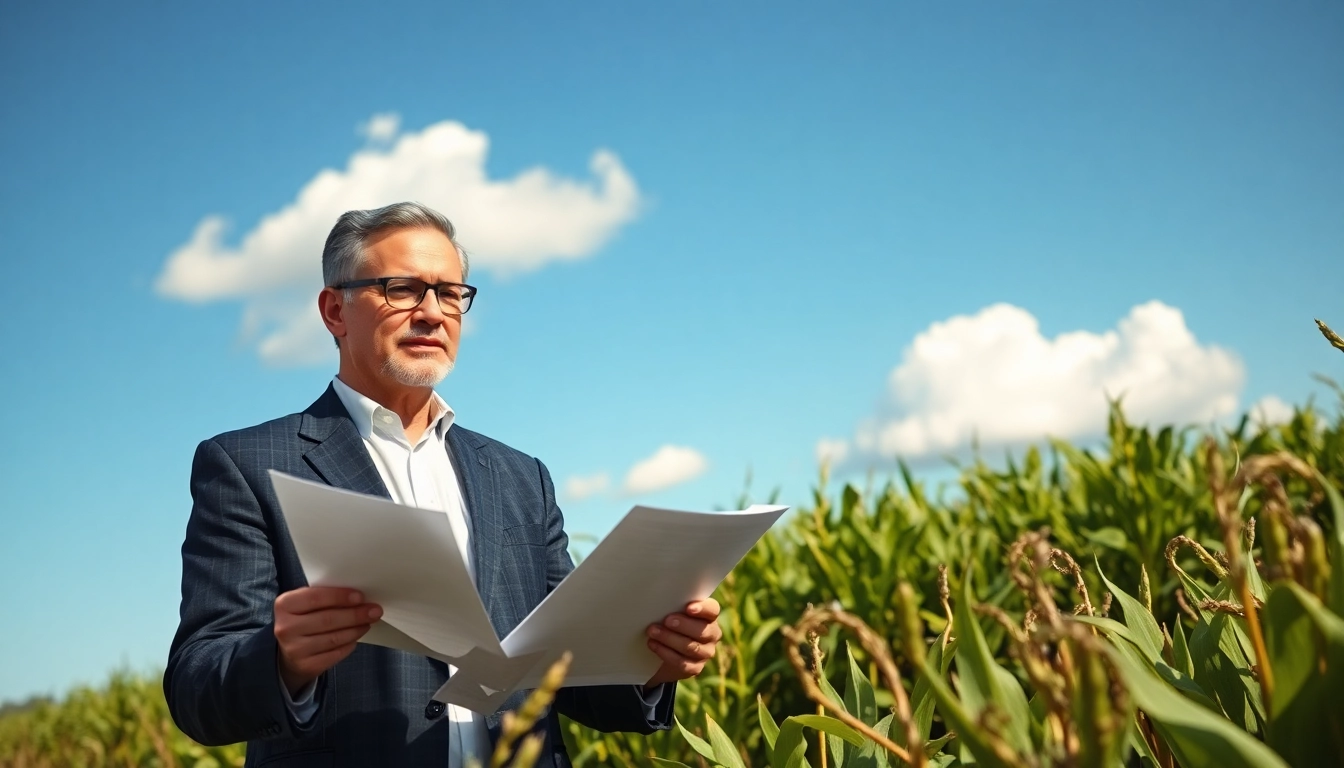Understanding the Role of an Agriculture Lawyer
Farmers often face a maze of legal challenges that can threaten their livelihoods and influence the success of their operations. This is where the agriculture lawyer comes into play. Specializing in the complex intersection of law and agriculture, these professionals equip clients to navigate a landscape filled with regulations, disputes, and compliance issues.
Key Responsibilities of an Agriculture Lawyer
The role of an agriculture lawyer encompasses various responsibilities aimed at protecting the interests of farmers and agribusinesses. Here are some of their key tasks:
- Legal Consultation: Offering expert advice on agricultural law to ensure clients understand their rights and obligations.
- Contract Management: Drafting, reviewing, and negotiating agreements involving land leases, sales, partnerships, and vendor contracts.
- Dispute Resolution: Representing farmers in disputes related to contracts, land use, and regulatory compliance through mediation, arbitration, or litigation.
- Regulatory Compliance: Helping clients adhere to local, state, and federal laws governing agricultural practices, including environmental regulations.
- Land Use Advice: Advising on zoning laws, land acquisitions, and changes in land use to facilitate farming activities.
Why Farmers Need an Agriculture Lawyer
The agricultural sector is fraught with unique legal challenges that require specialized knowledge. Farmers need an agriculture lawyer because:
- Protection of Rights: Legal representation ensures farmers’ rights are defended in various scenarios.
- Avoiding Costly Mistakes: Legal guidance can prevent inadvertent breaches of contract or regulations that could incur heavy fines or lawsuits.
- Complexity of Regulations: The agricultural landscape is influenced by numerous regulations that change frequently; an expert can help keep farmers informed and compliant.
Common Legal Issues Faced in Agriculture
Agriculture lawyers regularly deal with a range of legal issues unique to the farming industry:
- Property Disputes: Farmers may face challenges regarding land ownership, easements, and zoning changes.
- Environmental Laws: Compliance with laws that govern waste management, water rights, and pesticide usage is crucial.
- Labor Issues: Navigating labor laws relating to hiring, wages, and workplace safety is essential for agricultural operations.
Legal Services Offered by Agriculture Lawyers
Understanding the myriad of services that agriculture lawyers provide is essential for farming professionals. Their expertise covers a wide array of legal needs:
Contract Drafting and Review for Farmers
Contracts are a fundamental aspect of any agricultural business. Agriculture lawyers play a crucial role in drafting and reviewing contracts that affect farm operations:
- Lease Agreements: Ensuring fair terms for land use and tenant rights.
- Partnership Agreements: Establishing clear roles, responsibilities, and profit-sharing methods among partners.
- Sales Contracts: Protecting sellers’ rights and specifying product quality and delivery terms.
Dispute Resolution and Mediation Strategies
Conflict resolution is vital for maintaining good relationships in the agricultural community. Agriculture lawyers utilize several techniques, including:
- Mediation: A non-adversarial approach to resolve disputes through negotiation, with the lawyer acting as an intermediary.
- Arbitration: A more formal process where disputes are settled by an appointed arbitrator, providing a binding resolution.
- Lawsuits: When necessary, agriculture lawyers are prepared to represent clients in litigation to protect their interests.
Compliance with Agricultural Regulations
Compliance with an extensive range of regulations ensures legal and operational integrity. Agriculture lawyers assist with:
- Environmental Compliance: Advising on regulations regarding emission controls, waste management, and biodiversity protection.
- Health and Safety Standards: Educating farmers about their obligations to ensure workplace safety.
- Insurance and Liability: Helping farmers obtain the appropriate coverage to mitigate risks associated with farming operations.
Navigating Agricultural Law: Essential Topics
Understanding key areas of agricultural law can empower farmers to make informed decisions:
Land Use and Zoning Laws
Land use is a paramount concern for farmers, and zoning laws play a critical role in dictating how land can be utilized. Agriculture lawyers assist by:
- Understanding Zoning Classifications: Farmers must be aware of how their land is classified and the implications for use.
- Applying for Variances: If farming operations require zoning changes, lawyers guide farmers through the application process.
- Dispute Resolution: Addressing conflicts with neighboring landowners or government entities regarding land use issues.
Environmental Regulations Impacting Farming
Environmental regulations significantly influence agricultural practices. Compliance can provide legal protection while promoting sustainable methods. Lawyers provide assistance with:
- Water Rights: Understanding legal entitlements concerning water usage for crops and livestock.
- Pesticide Regulations: Ensuring farmers comply with laws governing pesticide application and usage.
- Soil Management Laws: Advising on land preservation and practices that prevent degradation.
Intellectual Property Rights in Agriculture
Intellectual property can be a valuable asset for farmers, particularly in innovations related to seed production and biotechnology. Agriculture lawyers can assist with:
- Patent Applications: Protecting innovations and products developed by farmers or agribusinesses.
- Trademark Registration: Ensuring branding elements are legally protected to distinguish products in the market.
- Enforcement of Rights: Taking action against infringements of intellectual property that threaten farmers’ competitive advantage.
Finding the Right Agriculture Lawyer
The selection of an agriculture lawyer can influence the effectiveness of legal counsel. Here are key aspects to consider:
Qualities to Look for in an Agriculture Lawyer
Choosing the right legal representation is crucial. Qualities to seek include:
- Experience: Look for lawyers with a background in agricultural law and familiarity with the specific legal issues that farmers encounter.
- Client-Centered Approach: A good lawyer should prioritize understanding the client’s needs and goals.
- Strong Communication Skills: The ability to explain complex legal concepts in layman’s terms is essential for effective collaboration.
How to Evaluate Agriculture Law Firms
To ensure a good fit, consider evaluating law firms based on several criteria:
- Track Record: Investigate the firm’s history of successfully representing agricultural clients.
- Client Testimonials: Seeking feedback from previous clients can provide insight into the firm’s effectiveness and professionalism.
- Resource Availability: Consider if the firm has adequate resources, including a team knowledgeable in agricultural issues and technology.
Questions to Ask a Potential Agriculture Lawyer
Before hiring an agriculture lawyer, it’s vital to ask pertinent questions to assess their qualifications:
- What is your experience with cases similar to mine?
- How do you charge for your services?
- Can you provide references from past clients?
- What strategies do you suggest for my particular legal issues?
Case Studies: Success Stories in Agricultural Law
Examining real-life case studies can illustrate the critical impact of agriculture lawyers in protecting farmers’ interests:
Effective Contract Negotiations and Outcomes
Tracy Farms faced a significant contract dispute with a major supplier regarding the quality and delivery terms of seed products. With the assistance of their agriculture lawyer, they navigated the complexities of contract law and achieved a favorable settlement that ensured reliable seed supply and compensation for previous losses.
Victory in Land Disputes: A Case Analysis
In a notable case, Green Acres Ranch was involved in a land dispute with a neighboring property owner over boundary lines. Their agriculture lawyer conducted thorough research on historical land claims and effectively represented them in negotiations, resulting in a favorable outcome that secured the ranch’s boundaries and protected its cultivation area.
How Legal Compliance Boosted a Farm’s Profitability
Sunny Meadows Farm implemented new sustainable practices but faced potential regulatory penalties due to compliance issues. By working closely with an agriculture lawyer, they overhauled their operational processes to adhere to environmental regulations. This not only improved their compliance standing but also enhanced their marketability, leading to a notable increase in profitability through sustainable branding.








